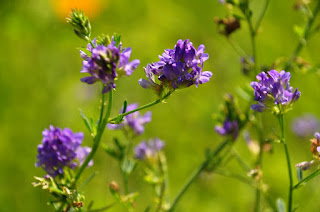6 Habits to Fall in Love with this Autumn
The leaves are falling, temperatures are cooling, and many
of us are preparing our homes for winter. Fall is a great time for cleaning up
around the house, but let’s not forget to keep water quality in mind while doing
so.
There are sources of water pollution that are unique to
autumn, such as yard wastes, excess fertilizers, and many others. We have
prepared a list of pollution prevention tips so that you can help protect water
quality this fall!
Leave the leaves. Leaf
litter and other yard wastes dumped into streets or local bodies of water can
cause flooding and harmful nutrient overload. If you can, leave the leaves on
your property; they make for great additions to compost piles or can be mulched
into your lawn. If you can’t leave the leaves, check with your township or city
for yard waste collection dates.
Fertilize with care. Many
homeowners fertilize their lawns and gardens in the fall to give them an extra
boost before spring. If you plan on using fertilizers, make sure to use them in
accordance with their label. And remember, less is more; any extra fertilizer
not absorbed into the soil can wash away and cause problems in our lakes,
rivers, and streams. Soil test before using fertilizers so that you know what
nutrients your lawn and garden needs!
Watch the weather. Fall
weather (and weather in general here in Michigan) is unpredictable. It’s
important to watch the forecast before using chemicals, such as fertilizers or
herbicides, as they could be washed away by a rainstorm if not given the proper
amount of time to absorb. Avoid watering your plants if rain is on the way;
conserving water outside will prevent excess runoff from entering nearby storm
drains.
Keep it covered. Planning on doing landscaping projects
around your property this fall? Any bare soil poses a risk to water quality as
it can be carried away by the wind or washed into nearby surface water during a
rainstorm. Using straw or erosion control materials to cover bare spots is a
good place to start; large mounds of soil can be covered with tarps.
Look for leaks. Fall
is a great time to check for leaky faucets and pipes. Checking for leaks now
will prevent any issues during the freezing winter months. Water conservation
around the home helps keep our waste treatment systems running smoothly and
reduces polluted runoff into our lakes and rivers.
Be septic smart. When
completing your fall to-do list, don’t forget your septic system! It’s
important to get your septic system inspected and/or pumped before winter to
help save you, your property, and our water from any issues that might arise
during the winter months. You can also insulate the drain field with straw to
protect the pipes from freezing. Maintaining your septic system is key to
protecting our waterways from any harmful wastewater.
Extra caution while completing your fall to-do list can make
a big difference in the health of our watersheds. We, and our water, thank you
for doing your part to protect water quality!
This
information is part of a larger project funded by EGLE under the NPS Control
Fund and Section 319 of the federal CWA.




Comments
Post a Comment